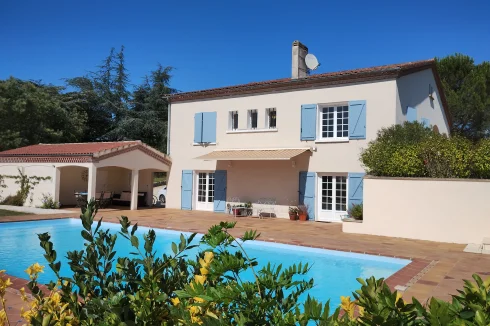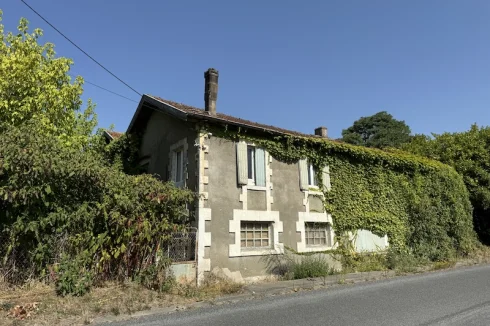Bringing Your Pension Lump Sum to France
Wednesday 04 November 2015
Does it make sense to take a lump sum pension payment in the UK before you relocate or to do so after you have
moved to France?
Where are Pension Lump Sums Taxed?
Under the tax treaty between the UK and France pension income is taxable in the country of residence, whether or not as income or as capital.
So if you are already resident in France, or you later relocate to France and take a lump-sum pension, it will be taxed in France.
There is, however, an exception to this general rule, which relates to government service pensions - military, civil servants, teachers, police, etc. Under the Double Tax Convention between the United Kingdom and France such pensions are taxable in the UK.
The mechanism by which double taxation is avoided is through a tax credit for 100% of the French tax attributable to the proportion of total household income represented by the UK government pension.
This method almost invariably increases the liability in France on any French taxed income. However, you would be completely exempt from social charges on the government service pension.
Taxation of Lump-Sums in UK
Most pension schemes in the UK have traditionally allowed those with personal pension rights to withdraw up to 25% of their pension as a lump sum, which is generally tax-free.
Since the reform of personal pension schemes in 2014 certain groups with a personal pension now have the right to withdraw the whole of their pension as a lump-sum from the age of 55 years, when 25% of the lump sum remains tax-free, with the remaining 75% taxable.
The minimum rate of income tax in the UK is 20%, rising to a maximum of 45%.
However, the right to draw down more than 25% of your pension only applies to those in 'Defined Contribution' schemes (also known as 'Money Purchase'), where the funds are invested and the final pension based on the performance of that investment.
Those in 'Defined Benefit' schemes (also known as 'Final Salary') are not affected by the legislative changes and so ineligible for more than 25% of the pension as a lump-sum.
Taxation of Pension Lump-Sums in France
Those resident in France who receive a lump-sum retirement pension that is taxable in France have four options from which to choose, although subject to qualifying conditions in two cases.
i. Marginal Rate - You can choose to make no specific provision and have the lump sum taxed in accordance with tax rates and bands applicable at the time of receipt. Prior to 2014 for those whose marginal rate of income tax in France was only 5.5% this was an attractive option, but since then this lower tax band has been abolished. The lowest tax rate is now 14%, albeit after a zero rate allowance of €9,690 on total household taxable income.
ii. Exceptional Payment - You can request that the lump sum is taxed as an 'exceptional payment' under which you can divide the sum by four equal parts, with each quarter part added to your other income for each of the four years. This is called the système de l'étalement. Ed Update Dec 2019 - This option abolished for pensions received after 1st Jan 2020. There have also been other developments affecting information contained in this article.
iii. Quota Part - You can request the sum is calculated by adding a quarter of the net taxable lump sum to your other net taxable income and then by multiplying by 4 the tax then due which is paid in a single payment. This is called the système du quotient. To qualify the payment must be greater than the average of total net taxable household income over the previous 3 tax years.
iv. Fixed Rate - You can opt for the whole of lump-sum pension to be taxed at a fixed rate of 7.5%. The lump-sum is not then taken into account in determining the tax payable on other income. This fixed rate option is called the prélèvement forfaitaire libératoire. It is only available if you receive the whole of the lump sum to which you are entitled, so that no part is deferred for payment at a later date, known as 'flexible drawdown'. Accordingly, if you are considering taking your pension in more than one lump sum payment you cannot use this option.
Whichever option you choose, the pension is subject to a 10% allowance before becoming liable to income tax. So the 7.5% fixed rate method of taxation actually equates to a rate of tax of 6.75%.
Contrary to the normal rules on pension income, under which the 10% is capped at a maximum sum, there is no ceiling on the amount of the 10% for lump sum pension payments, although you would need to confirm this is the case for either option 1 or 2, as the regulations are imprecise in relation to these two options.
In addition to income tax, lump sum pension payments (except for government service pensions and those on an S1 health certificate) are liable to social charges at the rate of 7.4%, payable on the gross sum, without deduction of the 10% allowance.
Ordinarily, the CSG element (6.6%) of the social charges is partially deductible (4.2%) against income tax. That is to say, your pension is reduced by the amount of deductible CSG you have paid, before income tax is calculated. However, this deduction does not apply to lump sums taxed at the fixed rate of 7.5%, although it does apply in relation to the other options.
The method used for recovery and deductibility of the social charges is a little complex, on which advice needs to be taken, as it may impact on the level and timing of your liability.
Those who are exempt from social charges are household not affiliated to the French health system, such as for those covered by an S1 certificate of exemption or by a private health insurance policy. This may well change in the future, as the French government seeks to circumvent the recent 'Ruyter' ruling in the European Court of Justice.
Although it is only likely to be relevant to a very small minority, some of you may also need to consider the French wealth tax considerations of withdrawing a large lump-sum. Only those with a net taxable wealth of at least €1.3 million need be concerned by this tax.
Eligible/Exempt Pensions
Only occupational, stakeholder and personal pensions where tax relief has been granted against contributions, or the lump sum is tax free, are eligible to be taxed as pension income in France.
Unregistered pension schemes that grant no tax relief in your home country are taxed as investment income. Such ineligible pensions are normally referred to in the UK as 'Employer-financed retirement benefit schemes (EFRB)', sometimes used by owner-managers.
That said, were you to declare such income as pension income on your French tax return it would not be an improper method of declaration.
Conclusion
As can be seen, given that in France no part of a lump-sum pension is tax free if you are considering a lump-sum withdrawal it clearly makes sense to do so before you relocate to France, provided you keep within the 25% tax-free allowance.
Beyond this threshold there are tax advantages in taking any further lump-sum in France, as the rate of taxation is likely to be lower in most cases than the minimum 20% rate of taxation that applies in the UK.
There seems to us no reason why it should be necessary to disclose that you have previously drawn down 25% before relocating to France, and that should you be obliged to do so such a disclosure would have no bearing on the manner in which you were taxed.
If you are entitled to a government service pension you have no choice but to have your pension taxed in the UK, whether or not already resident in France.
This article is merely for general guidance. You are strongly advised to seek good professional advice on this issue.
Next Article: Paris Council Pre-empts on Apartment Sales
Thank you for showing an interest in our News section.
Our News section is no longer being published although our catalogue of articles remains in place.
If you found our News useful, please have a look at France Insider, our subscription based News service with in-depth analysis, or our authoritative Guides to France.
If you require advice and assistance with the purchase of French property and moving to France, then take a look at the France Insider Property Clinic.





